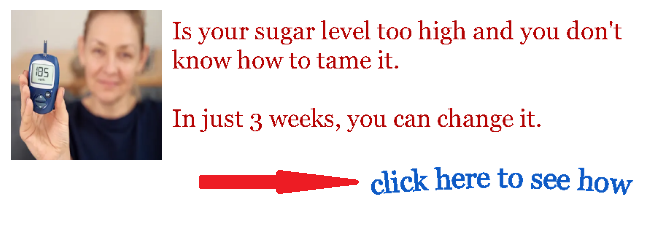Life with diabetes
You notice that you urinate a lot more, especially during the night. You find that you are very thirsty the whole time. Suddenly you start losing weight without trying, yet you are constantly hungry. Your vision have started getting blurry. Your hands and feet has taken on a tingling feeling. Even though you got a full night’s rest, you are so tired that you just want to sleep. You keep putting on cream, but your skin is as dry as the deserts of Namibia. That cut you got last month while making food is still not healed. You are home in bed again, because you are sick for the umpthteen time. What is going on? Finally you decide to ask your doctor to do a battery of tests, and they call you back to sit you down. Sorry sir, madam, you have been diagnosed with diabetes.
Suddenly your whole world changes. You get a crash course on how to use this little contraption that stabs your finger for a drop of blood, which you then have to put on a slice of paper and insert back into the machine, which then spits out a bunch of digits which you need to learn how to interpret. You suddenly have to change what you eat, when you eat, how much you eat. You have to change what you drink, when you drink, how much you drink. Even your exercise routine gets interrupted. You can no longer just jump on that treadmill and jog to your heart’s desire.
You stand in front of the mirror and look at yourself. How did this happen? How did you end up with diabetes? Surely this is something that should not affect you! Yet it did, and now you have to live with this. You jump on the internet and come across all these articles telling you how you are going to die in all these horrible ways. But then you come across this one article that tells you that everything will be okay. The article tells you that the average life expectancy of someone living with Type 1 diabetes is seventy years, and the life expectancy of someone living with Type 2 diabetes is seventy five years.
This is where we get into what to expect when you’re diabetic.
Type 1 Diabetes
This type of diabetes usually develops when you are a child, but may develop at a later stage in your life. It is basically a condition where your immune system destroys the insulin-making cells in your pancreas. These cells are called beta cells. But it is not always your immune system that destroys these cells. It can also be caused by a disease or an injury to your pancreas.
The symptoms of Type 1 diabetes can range from subtle to severe, and includes extreme thirst and dry mouth, which leads to frequent urination and bedwetting in some cases (especially in children), increased hunger which may lead to an upset stomach and vomiting, unexplained weight loss, constant fatigue, blurry vision even though you have perfect eyesight, dry skin, unexplained mood changes, and Kussmaul respiration, which is basically heavy, laboured breathing. When you start experiencing shaking and confusion, rapid breathing, severe stomach pain, have a fruity smell to your breath, or lose consciousness, then it is time to make a trip to the emergency room.
Unfortunately Type 1 diabetes is not preventable. Doctors still don’t know exactly what causes it, although your genes may play a role. One thing that they do know is that you can get Type 1 diabetes if a virus attacks your pancreas, if your pancreas is damaged in an accident, or if you get pancreatic cancer. If you do not manage your Type 1 diabetes, this will lead to damage to your body. If there is a constant high glucose level in your blood, this will harm the nerves and small blood vessels in your kidneys, eyes, and heart. This in turns leads to hardened arteries, which may then lead to heart attacks and strokes. A lesser known fact that doctors have found in studies is that you are at a higher risk of getting Type 1 diabetes if you are younger than the age of 20, if you are Caucasian, and if you have a parent or sibling who have Type 1 diabetes. Another interesting fact is that of all people who have diabetes, only about 5% of those have Type 1 diabetes. Males and females are affected equally.
Type 2 Diabetes
Type 2 diabetes is the most common, and can be so mild that you never notice that you have it. There are approximately eight million people living with Type 2 diabetes without knowing they have it. When looking at statistics from America, there are approximately 29 million people living with Type 2 diabetes, and a further 84 million people who are prediabetic. Type 2 diabetes is where your body is insulin resistant, which keeps your body from using insulin as it should. Middle-aged people and older people are most at risk for getting Type 2 diabetes, although in the last couple of decades it has started affecting children and teenagers as well, caused by childhood obesity.
The signs and symptoms of Type 2 diabetes are quite similar to Type 1 diabetes, and includes being very thirsty, which leads to urinating much more, having unexplained mood swings, constant fatigue, tingling or numbness in the feet and hands, wounds that does not heal, constantly feeling hungry, and recurring yeast infections. Another clear indication that you should go and see your doctor is if you develop dark rashes around your neck or armpits, as this may be a sign that your body is becoming resistant to insulin. These rashes are called acanthosis nigricans, and mostly affects those who are of African descent.
Doctors do not understand exactly what causes Type 2 diabetes, but they do know that the hormone made by your pancreas, named insulin, is not used by your cells as they should be. This in turn causes your pancreas to make more insulin, but eventually the pancreas cannot keep up, and the glucose builds up in your blood instead. There are several markers that doctors have discovered that also leads to Type 2 diabetes, and some of these combine to cause Type 2 diabetes.
Genes often play a role, but obesity is a big cause. These two combined may cause metabolic syndrome, where you will find high blood sugar, obesity, high blood pressure, and high cholesterol. Then there is the liver that may produce too much glucose. What should be happening is that your liver should slow down production after you eat, and store its glucose for later. But sometimes the liver keeps producing glucose even if you’ve eaten. It can also be due to bad communication between your cells, where the cells send the wrong signals and affects how your cells makes and uses insulin and glucose.
The true face of diabetes
But what is it like to truly live with diabetes? Being overweight is already a factor that may cause diabetes. Becoming overweight because you were carrying a big baby is another factor that may contribute to diabetes. Having depression post-partum is yet another factor that may cause diabetes. Now let’s say that you became pregnant and gained some weight, then had to stop smoking immediately because you were now pregnant. The stress of withdrawal, from the impending responsibility of being a parent, and from planning your maternity leave really starts to get to you.
Your belly keeps growing, and you find out that this is going to be quite a big baby. As if all of this isn’t enough already, you get some days where you hardly sleep at all, and other days where you can’t seem to get out of bed. Because you are pregnant you feel that you cannot get much exercise in, so you decide you’ll start back up with your gym regime once the baby is born. But then the baby is born, and it was a terrible ordeal! The baby was so big that they had to do an emergency C-section, and now you are in therapy for post-partum depression. You start smoking again, even though you know it’s bad for you. You notice that your skin and hair is unusually dry, even with all the showering and washing. Maybe it’s because you shower too often? This concerns you, so you decide to go to the doctor. They listen to all that you have to say, and they send you for a fasting blood test. The results come back and your doctor tells you that you have Type 2 diabetes, and should come in to see him. In an instant everything changes even more, and that adds to your stress.
Yes, that is a real story. And it is one of many stories out there. Living with diabetes is completely manageable, and it is not stopping you from living a full and happy life. The road to that might be littered with struggling stones, but as you work through the setbacks, you learn and grow. Diabetes is not the end of the road, and you can live well into your seventies if you manage your diabetes correctly.
Given that Diabetic person need to pay attention to what he is eating. I’ve started to test how food affects our blood condition. If you are interested you can watch it in Hematic food youtube channel. Here is an example of my experiments.



